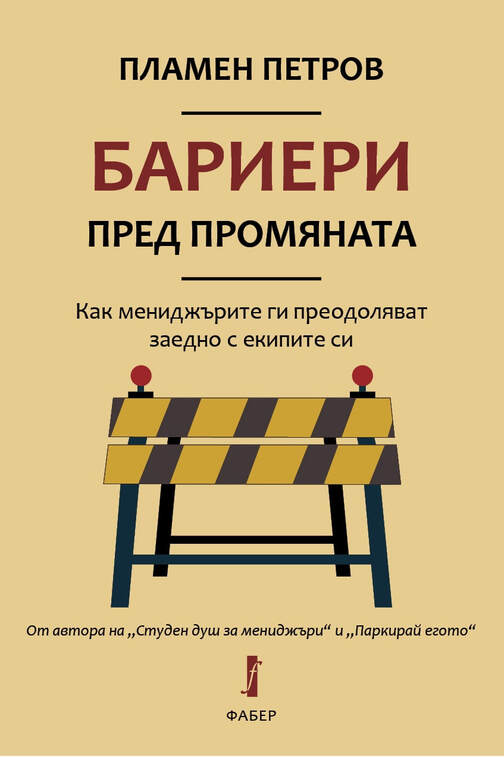|
"Turning language into action is much more difficult than turning action into language."
Maxim Gorky In most cases, the managers do not lack knowledge about what and how to do. But they lack the courage and discipline to put their knowledge into practice. They succumb to the difficulty at the expense of convenience. This comes as a surprise to the sponsors of the leadership programs when we start a new project. These sponsors typically think that the managers lack the content of knowledge from several wagons of books, the competence for some models that are being studied in MBA programs, etc. All this technical knowledge is important, but it is not the most important thing. Besides, it is readily available on Google and Amazon. The lack of knowledge rarely hinders managers in their daily work. The real obstacles are derived from courage and discipline. The managers are easily distracted when they do not have enough courage. They do not organize their time and priorities well. They hesitate to pay attention to the noise and not to the signals. When they lack enough courage - they put their comfort before the growth of others and the development of the company. What does this mean? For example, if managers know very well that they must address the unsatisfactory performance of a member of their team and they have to have a tough conversation, they often procrastinate. Thus hoping that things will work out on their own. But in the teams, almost nothing is fixed by itself. It is almost impossible to create order and clarity without some leadership and management. Only chaos and confusion can be created by themselves. These are the natural results when managers hesitate and procrastinate. So, it is not a question of more knowledge to improve the performance of managers. It is a question of the real use of the already gained knowledge - to set ambitious goals, to give inspiring negative and positive feedback, to delegate, to align the company's goals with the needs of the people, to stimulate and celebrate small victories, to learn lessons from small and big failures, etc. In other words, we must address the gap between knowing and doing. The real things that stand in this gap are never material. There is no lack of supplies, budgets, or time. The real things are the lack of organization, courage, discipline, and adherence to one's high standards. Falling into the gap between knowledge and doing is inevitable. Simply because managers absorb a vast amount of information and new knowledge daily. The point is rather to note that the obstacles to overcoming everyday problems or crises are not related to the lack of new knowledge, but they are related to the lack of use of this knowledge. For example, if you want to achieve an even distribution of work in the team, you know very well that you should direct the new tasks to those people who are less busy now. You do not lack any special formula and knowledge of how to distribute the work effectively. However, instead of assigning the new tasks to more available people, you choose to give the tasks to those who are already very busy. Why does this happen? You choose to put extra work on already busy people, simply because you know that they will do the job. The genesis in their overloaded workload is in them. But the genesis of the uneven workload in the entire team is the manager of the team. These people quickly agree and finish the new job quickly. There is no debate about the fact that we do not train them, that we do not plan the new workload, that someone else has less work, etc. Especially with younger managers, there is a tendency to look for completely alternative solutions to the same old problems. Sometimes you just have to implement well-functioning and time-tested solutions. And not to constantly learn something new. The desire for continuous learning can be confused with the desire for constant procrastination. Learning is much more comfortable than actual work and collecting feedback from reality. But the reality is the best source of learning. Not the classroom. There is another manifestation of this gap between knowledge and doing. Managers complain that the same people on the teams ask them about the same things - for example, how to answer a common customer request, how to fix something on the computer, etc. The frustration comes from wasting managerial time on questions whose answers are clear to the people, but they, out of habit or simply not taking full responsibility, prefer to ask again and get the same answer again. The problem here is not with the people who are asking the questions. The problem is in the managers who provide the same answers repeatedly. The ones who ask questions should also be asked - "What do you think will happen if nothing has changed since last time?", "If you were in my shoes, what would you answer?", "How can you understand this on your own?”, etc. The teams are always a reflection of their managers. When there are people who do not think for themselves and do not take responsibility for their actions - managers have simply developed a tolerance for others who do not take responsibility. When managers do not demand responsibility - they create bad habits in their people and open the door to learned helplessness. In this way, managers turn their people into walking mailboxes, which collect problems from the entire company and bring them to their manager to solve. The job of the manager is not to solve the problems of his team, but to increase the capacity of people to solve their problems. Whatever these problems are. To help people improve and solve their problems, you must first improve in provoking their thinking and attitude to deal with challenges. Your proper work with people always starts with genuine work on yourself.
0 Comments
Leave a Reply. |
Архиви
July 2024
|
__________________________________________
Copyright © 2011-2024, Equinox Partners Ltd. All rights reserved.
Copyright © 2011-2024, Equinox Partners Ltd. All rights reserved.

 RSS Feed
RSS Feed


